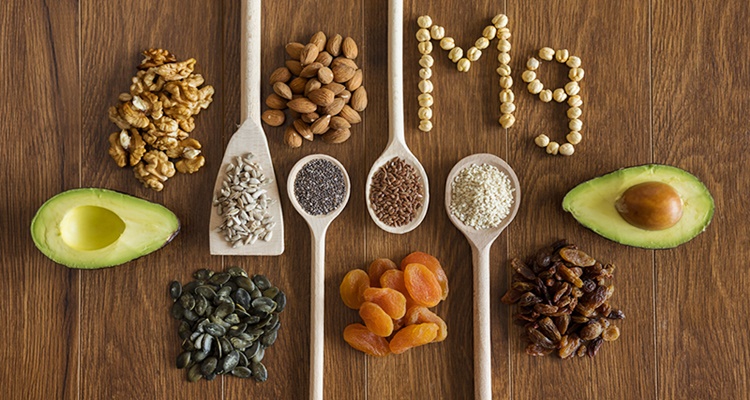What are the healthy foods with magnesium and the reasons why the body need this mineral.
FOODS WITH MAGNESIUM – This mineral is needed by the body for many reasons and these are the various foods that are both healthy and loaded with this.
A mineral that is essential for healthy muscles, nerves, bones and blood sugar levels is magnesium. If you don’t get enough amount of this in a long period of time, you are at a higher risk to have serious health problems such as heart attack, stroke, diabetes, or osteoporosis.
Severe magnesium deficiency may also lead to some bothering symptoms such as numbness, muscle cramps, and an abnormal heart rhythm.
The importance of this mineral:
- for the proper function of muscles and nerves
- to maintain the normal level of blood sugar and blood pressure
- to make proteins, bone, and DNA
Some of the signs of lack of this mineral are headaches, loss of appetite, nausea, vomiting, fatigue, and weakness. As mentioned above, severe cases may result in numbness or tingling, muscle cramps, seizures, and abnormal heart rhythm.
To ensure that you get enough, these are the foods that must be included in your meals:
- leafy green vegetables, whole grains, beans, nuts, and fish
- some fish such as salmon, halibut, Atlantic mackerel, and Atlantic pollock
- healthy fruits and vegetables such as:
- Spinach
- Swiss chard (and other leafy green vegetables)
- Bananas
- Tamarind
- Potato with skin
- Okra
- Broccoli
- whole-grain products like bran cereals, wheat germ, quinoa, and brown rice
- soy
- cheese
- yoghurt
- meat alternatives like black-eyed peas, black beans, chickpeas, edamame, cooked tempeh
- soy nuts, tofu, almonds, cashews, and other nuts
- pumpkin seeds, flaxseed, chia seeds, and other seeds
- peanut butter
How much magnesium is in your food?
- 1 oz Pumpkin seed – kernels: 168 mg
- 1 oz Almonds, dry roasted: 80 mg
- ½ cup Spinach, boiled: 78 mg
- 1 oz Cashews, dry roasted: 74 mg
- 1 oz Pumpkin seeds in shell: 74 mg
- ¼ cup Peanuts, oil roasted: 63 mg
- 2 large biscuits Cereal, shredded wheat: 61 mg
- 1 cup Soymilk, plain or vanilla: 61 mg
- ½ cup Black beans, cooked: 60 mg
- ½ cup Edamame, shelled, cooked: 50 mg
- 1 oz Dark chocolate 60-69% cocoa: 50 mg
- 2 tablespoons Peanut butter, smooth: 49 mg
- 2 slices Bread, whole wheat: 46 mg
- 1 cup Avocado, cubed: 44 mg
- 3.5 oz Potato, baked with skin: 43 mg
- ½ cup Rice, brown, cooked: 42 mg
- 8 oz Yogurt, plain, low fat: 42 mg
- 1 packet Oatmeal, instant: 36 mg
- ½ cup Kidney beans, canned: 35 mg
- 1 medium Banana: 32 mg
- 1 tablespoon Cocoa powder – unsweetened: 27 mg
- 3 oz Salmon, Atlantic, farmed: 26 mg
- 1 cup Milk: 24–27 mg
- 3 oz Halibut, cooked: 24 mg
- ½ cup Raisins: 23 mg
- 3 oz Chicken breast, roasted: 22 mg
- 3 oz Beef, ground, 90% lean: 20 mg
- ½ cup Broccoli, chopped & cooked: 12 mg
- ½ cup Rice, white, cooked: 10 mg
- 1 medium Apple: 9 mg
- 1 medium Carrot, raw: 7 mg
What can you say about this? Let us know in the comments!

